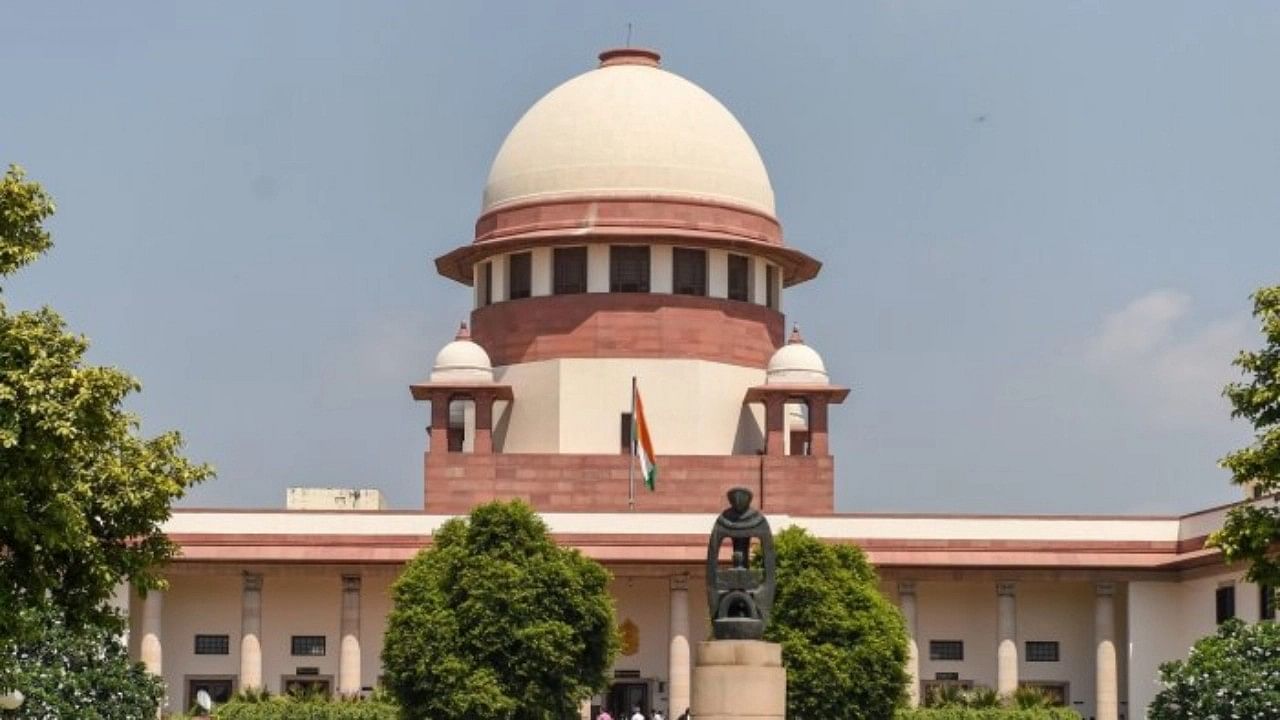
The Supreme Court of India.
Credit: PTI File Photo
New Delhi: The Supreme Court has set up a five-judge Constitution bench to begin hearing a batch of pleas challenging the validity of the electoral bonds scheme on October 31.
A five-judge bench led by Chief Justice of India D Y Chandrachud and comprising Justices Sanjiv Khanna, B R Gavai, J B Pardiwala, and Manoj Misra will consider the petitions challenging the scheme as a source of political funding.
On October 16, the Supreme Court had said that it will refer the challenge to the electoral bonds scheme to at least a five-judge bench of the apex court.
The bench led by the CJI had then announced the decision to refer the matter to the Constitution bench consisting of at least five judges. The Chief Justice had said in view of the importance of the issue raised, and with regard to Article 145(3), that the matter would be considered by the Constitution bench.
On October 10, a bench led by the Chief Justice of India and comprising Justices J B Pardiwala and Manoj Misra had said it will begin final hearing on the matter on October 31, and if there is a spillover, the hearing will continue on November 1.
The scheme introduced in 2018 was challenged by the Association for Democratic Reforms, Communist Party of India (Marxist), Dr Jaya Thakur (Congress leader), Spandan Biswal, and others.
The petitioners claimed the identity of the purchaser of the electoral bonds is kept anonymous. The real anonymity is when the money is transferred to a political party, who has transferred to which political party is anonymised from the public domain, and that is the real challenge, they contended.
The Centre had maintained that the electoral bonds scheme is an absolutely transparent mode of political funding and there was no possibility of black money in it.
On March 27, 2021, the apex court, by an order, had rejected the charge that the scheme was totally opaque. The apprehension that foreign corporate houses may buy the bonds and attempt to influence the electoral process in the country, was "misconceived", it had said.
The court had further held that under Clause 3 of the Scheme, the Bonds may be purchased only by a person who is a citizen of India or a company incorporated or established here. It had also noted the purchase as well as encashment of the bonds, happening only through banking channels, is always reflected in documents that eventually come to the public domain.
